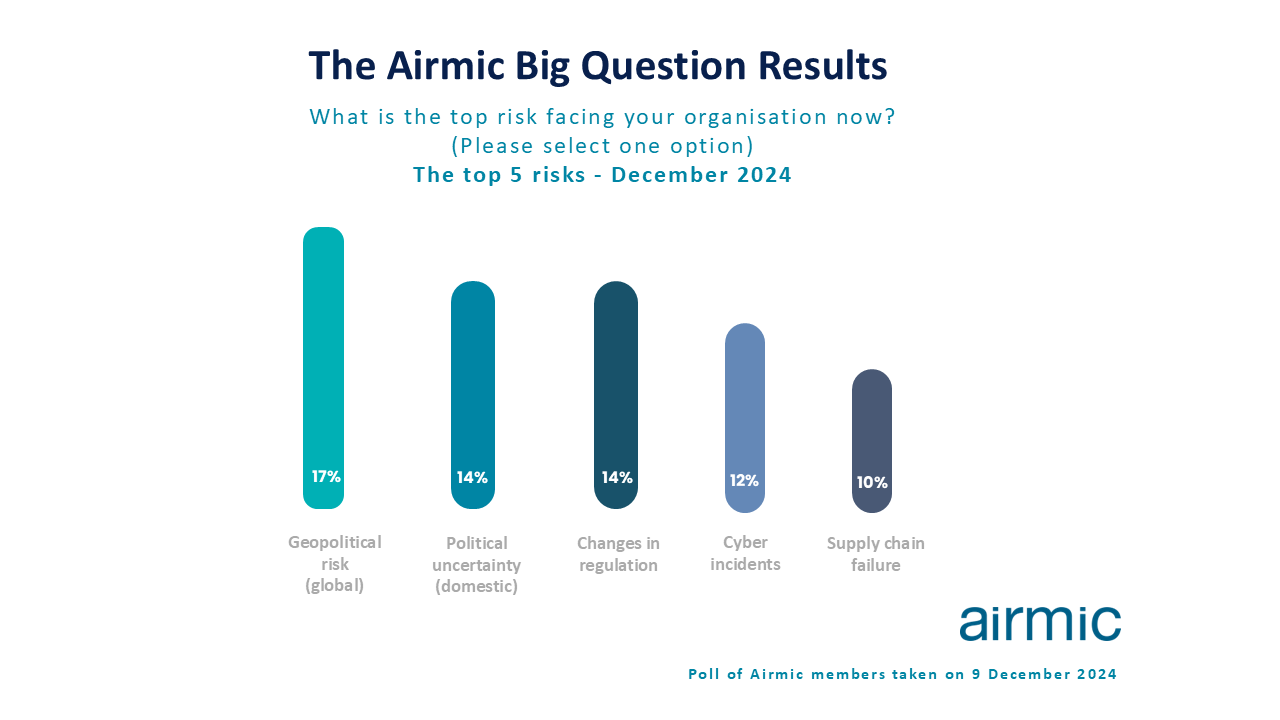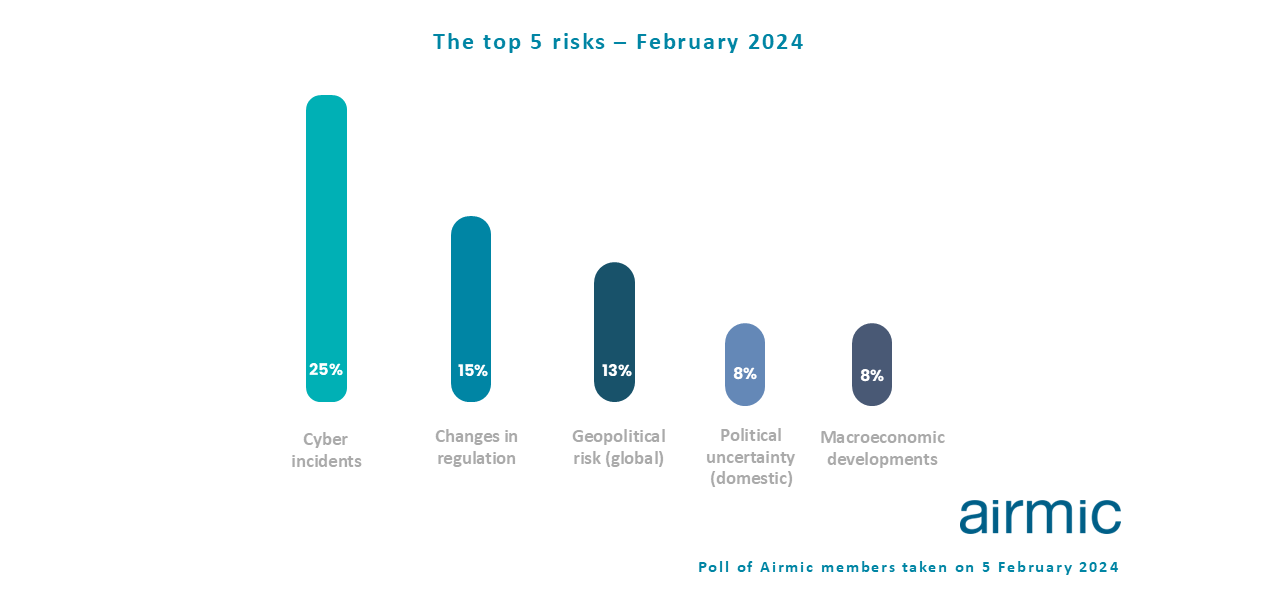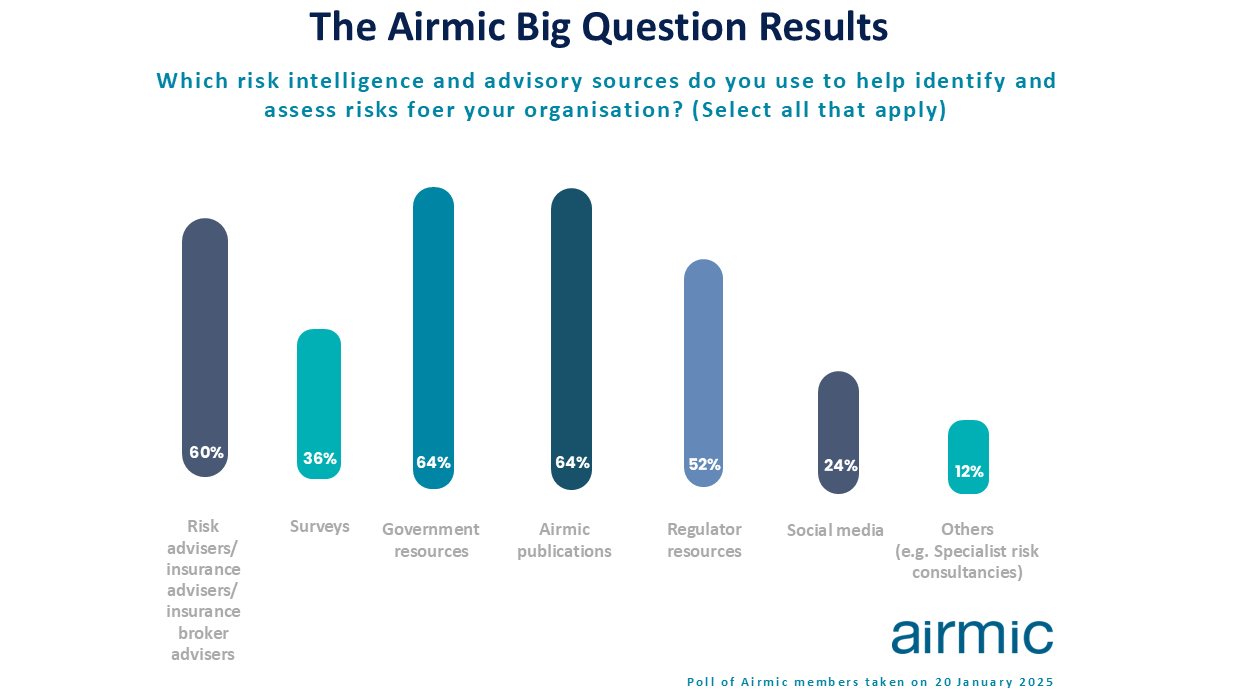GEOPOLITICAL RISK GREW OVER THE COURSE OF 2024 TO BECOME TOP RISK: AIRMIC MEMBERS
More risk professionals are relying on government resources.
Geopolitical risk overtook cyber incidents and changes in regulation over the course of last year as the top risk facing organisations, as the previous Airmic Big Question survey of Airmic members on 9 December revealed. Meanwhile, more risk professionals are relying on government resources to identify and assess risks for their organisations, as this week’s Airmic Big Question survey showed.
Just this week, State-based Armed Conflict emerged as the top risk currently in the 2025 World Economic Forum (WEF) global risks report.


Julia Graham, CEO of Airmic, said: “In the course of a year which has seen a record number of elections being held, and with conflicts in various regions of the world raging on, it may seem natural that geopolitical risk has become the top risk for organisations. There are signs of a possible resolution to the Russia-Ukraine war this year, though lasting peace would be fragile as the ceasefire between Israel and Hamas suggests. But risk professionals and their organisations urgently need to adapt to a world of perma-geopolitical crisis unlike any other period in their lifetimes – they need to build resilience and be agile in responding to the challenges of ‘once-in-a-generation events’ occurring with regular frequency.”
At the beginning of 2024, geopolitical risk was ranked third in an Airmic poll conducted on 5 February. By the start of 2025, domestic political uncertainty in various countries around the world also rose through the ranks to joint second place, along with changes in regulation, as the record “year of elections” ended with the ruling parties or coalitions in Germany, France, Austria and South Korea being thrown into fresh turmoil.
Meanwhile, there has been a significant increase in the percentage of risk professionals relying on government resources to identify and assess risks for their organisations (64%), since Airmic last polled its members on the same question in April 2022 (59%) – to become the top risk intelligence and advisory source they use, along with resources from Airmic as the UK’s association for risk professionals.

Hoe-Yeong Loke, Head of Research at Airmic, said: “The rise of populist politics today has created a polarised environment where people are showing very low levels of trust in the communication coming from ‘the other side’. However, Airmic’s surveys suggest that that distrust doesn’t extend to communication coming from governments – as opposed to politicians. From a longer term perspective, trust in government on the nitty-gritty issues that really matter has been steadily growing through the tumult of the Covid-19 pandemic and now an extended period of geopolitical turmoil.”
Airmic has also reiterated its commitment to supporting its members through the maelstrom of geopolitical risks facing their organisations and society at large.
Leigh-Anne Slade, Head of Media, Communications and Interest Groups, said: “Unlike many other types of risks, risk professionals need the right channels and platforms to discuss geopolitical risks facing their organisations, given political sensitivities. Airmic’s geopolitics special interest group is one such Chatham House-rule safespace that risk professionals need more of to share good practice, common challenges and business intelligence.”
If you would like to request an interview and or have any further questions, please let me know.
We will be sharing the results of the Airmic Big Question with the press weekly.
You can also find the results here.
Media contact: Leigh Anne Slade
Head of Media, Communications and Interest Groups, Airmic
Leigh-Anne.Slade@Airmic.com
07956 41 78 77
